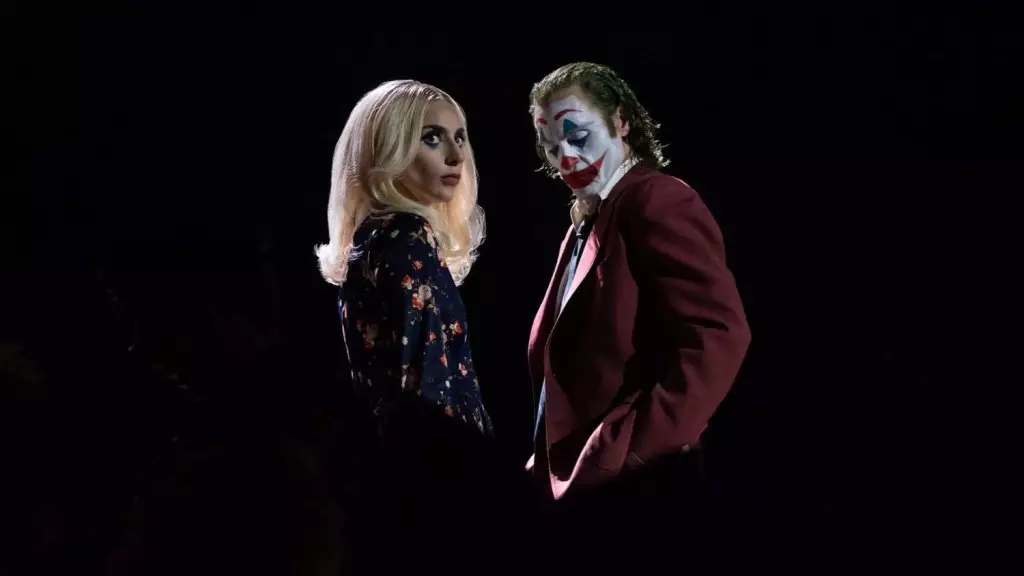The highly anticipated sequel to Warner Bros.’ original “Joker” film, titled “Joker: Folie à Deux,” is set to make a sizable impact on the box office. With early projections estimating an opening weekend gross of over $70 million, the film attempts to carve out a distinct identity by venturing into the world of musicals—a bold decision not commonly associated with the notoriously grim narrative of the Joker saga. The combination of Oscar-winner Joaquin Phoenix and music icon Lady Gaga adds intrigue, but it raises the question: can audiences accept the idea of iconic comic book characters engaging in musical performances?
The film debuted at the Venice Film Festival, where it secured a fresh rating of 62% from critics. It’s important to recognize that the first “Joker” faced similar scrutiny upon its initial screenings, with a nearly identical score that eventually rose to 69%. This historical context suggests there may still be room for optimism as public sentiment develops. However, the unique twist of incorporating musical elements represents a new frontier and produces mixed feelings among die-hard fans of the franchise. The challenge lies in bridging the gap between the dark, brooding essence of Arthur Fleck’s character and the buoyant atmosphere typical of a musical.
“Joker: Folie à Deux” is projected to see a lower opening than its predecessor, which debuted to a substantial $96.2 million. Nonetheless, even a figure around $70 million would be considered a significant achievement, especially for a non-Disney musical. Historically, recent musical endeavors such as “Bohemian Rhapsody” provide benchmark comparisons, showing that a dedicated audience can indeed manifest despite the genre’s typical hurdles. In fact, an opening of around $70 million would mark it as potentially the seventh highest October opening in history, underscoring its commercial viability and potential staying power.
Warner Bros. has taken a unique marketing approach, opting to promote “Joker: Folie à Deux” more as a continuation of the Joker legend rather than strictly as a musical. This clever strategy contrasts with how many studios typically market films within the same genre, which often leads to a lower audience turnout. It seems that they are attempting to “trick” viewers into engaging with the film by leaning into the darker themes that defined the first installment, while simultaneously introducing musical elements that could draw in a broader demographic.
Ultimately, the success of “Joker: Folie à Deux” hinges on whether fans of the first film can adapt to the new musical direction. While the franchise’s foundational dark themes will persist, the addition of music alters the narrative fabric significantly. It poses an innovative yet risky gamble for Warner Bros.—ushering the iconic character of Joker into unfamiliar territory while hoping for audience receptivity. As presales surge, particularly among males over 25, the coming weeks will be revealing; it remains to be seen whether Joker’s fans are ready to witness their beloved anti-hero engage in song and dance.

